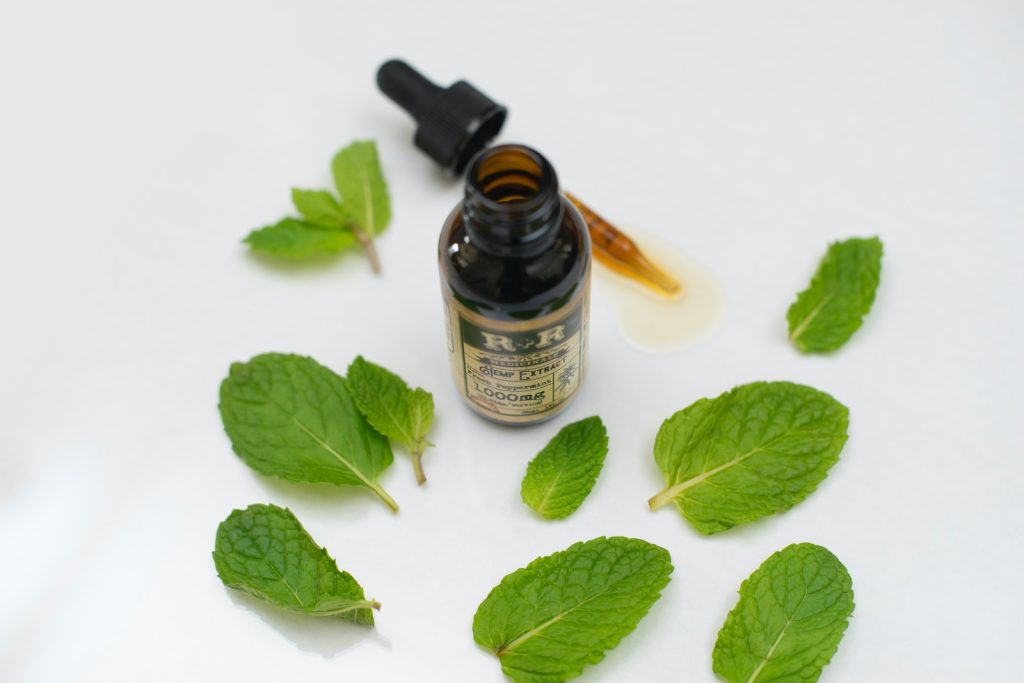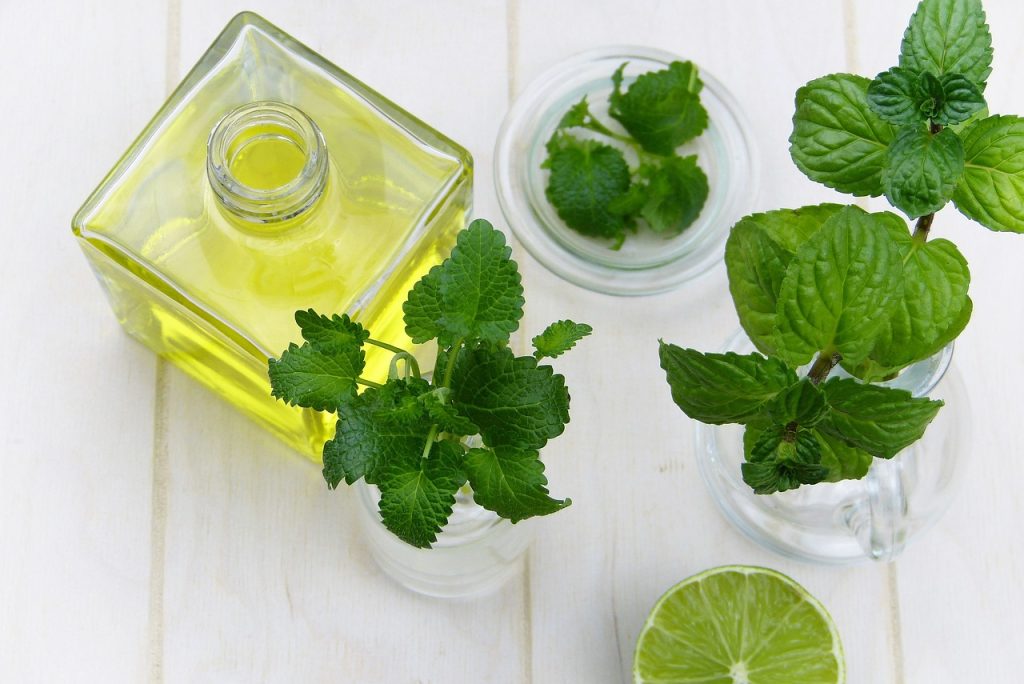Peppermint Oil vs Peppermint Extract: Understanding the Difference
When it comes to peppermint-flavored or scented products, you may have encountered two key ingredients: peppermint extract and peppermint oil. While they share similarities in terms of their sensory effects, it’s essential to understand the difference between the two. In this article, we will explore the distinctions, uses, and safety considerations of peppermint oil and peppermint extract.

What is Peppermint Extract?
Peppermint extract is a blend of peppermint oil and a binding medium, typically alcohol. This medium carries the flavor and other effects of the extract. There are two common methods for producing peppermint extract:
- Soaking Method: Peppermint leaves or stems are soaked in an alcohol solution, allowing the alcohol to absorb the peppermint molecules and extract the flavor from the plant.
- Dilution Method: Peppermint oil is diluted with an alcohol medium to create the extract.
The resulting product is a diluted version of peppermint oil that smells, tastes, and acts similarly. However, because the oil has been significantly diluted or extracted, it is less potent and poses fewer risks when applied to the skin.
If you wish to make your own peppermint extract, you can dilute a few drops of pure peppermint oil into an alcohol mixture. The concentration of peppermint oil will affect the intensity of the extract. It’s important to use a precise, controlled dropper to ensure accurate measurements.
Understanding Peppermint Oil
Peppermint oil is a concentrated oil derived from the stems and leaves of the peppermint plant. It is commonly extracted through a steam distillation process, where the plant parts are exposed to high pressure and high-temperature steam. The oil evaporates, cools, condenses, and is collected for use.
Another extraction method is cold pressing, which involves pressing the leaves and stems with high-pressure machinery. Regardless of the method, pure peppermint oil is incredibly potent, with a strong flavor and fragrance.
It’s important to note that pure peppermint oil is not suitable for direct application to the skin or ingestion due to its intensity and potential health risks. Instead, it is often mixed with a carrier oil for topical application or used as an ingredient in various products.

Differentiating Peppermint Extract and Peppermint Oil
The primary difference between peppermint extract and peppermint oil lies in the presence of alcohol or a carrying medium in the extract. Peppermint extract includes alcohol or a medium, while peppermint oil is the pure essential oil extracted from the peppermint plant.
Here are some key differences between the two:
- Safety: Pure peppermint oil can be potentially dangerous when applied directly to the skin, while peppermint extract is less hazardous. Applying peppermint extract with alcohol may cause skin dryness but is unlikely to cause other issues.
- Uses: Peppermint extract is commonly used in topical treatments, baking, and aromatherapy. On the other hand, peppermint oil is used in lower quantities due to its potency and is suitable for topical creams, oral capsules, and baking.
- Evaporation: Peppermint extract evaporates quickly due to its high alcohol content, making it less suitable for high-heat cooking. Peppermint oil, however, retains its properties even under high temperatures.
In summary, peppermint extract requires peppermint oil as a key ingredient, while peppermint oil can exist independently without the need for extraction or dilution.
Uses of Peppermint Extract
Peppermint extract finds a wide range of applications in topical treatments, baking, and aromatherapy. Here are some common uses:
1. Topical Treatments
Peppermint extract can be diluted with water or a carrier oil and applied topically to provide relief for various skin conditions. It may help soothe rashes, bites, and skin irritations when mixed with a carrier oil containing a methanol concentration of 16 percent or less.
2. Baking
Peppermint extract is a popular ingredient in baking due to its pleasant flavor. While it may evaporate under high heat, it is more cost-effective compared to pure peppermint oil.
3. Aromatherapy
When mixed with water or a carrier oil, peppermint extract can be used in aromatherapy. The evaporating scent may help clear congestion, soothe lung irritation, and promote a sense of calm.
It is important to pay attention to the concentration of peppermint oil in any peppermint extract product, as higher concentrations will result in stronger peppermint effects.
Utilizing Peppermint Oil
Due to its potency, peppermint oil is typically used in smaller quantities compared to peppermint extract. Here are some common uses of peppermint oil:
1. Topical Creams
When mixed with a carrier oil, peppermint oil can be used topically to alleviate skin irritations, such as rashes, bites, and itchiness. It is important to dilute the oil properly to avoid skin sensitivity.
2. Oral Capsules
Peppermint oil is often found in oral capsules used to relieve indigestion, irritable bowel syndrome (IBS), and similar digestive issues. It is believed to have a calming effect on the digestive tract and may provide relief for upset stomachs.
3. Baking
Although more expensive than peppermint extract, peppermint oil remains a popular choice for baking due to its intense flavor. Unlike peppermint extract, it does not evaporate quickly under high temperatures.
It is crucial to exercise caution when handling pure peppermint oil, as direct application or ingestion can lead to adverse health effects.
Safety Considerations
While both peppermint extract and peppermint oil have their uses, it is important to be aware of their potential risks and safety precautions:
- Pure peppermint oil should never be applied directly to the skin or ingested due to its high concentration and intensity.
- When using peppermint extract, be mindful of the alcohol content and its potential drying effects on the skin.
- Always follow recommended dilution guidelines and consult a healthcare professional if you have any concerns or existing medical conditions.
Conclusion
In conclusion, understanding the difference between peppermint extract and peppermint oil is crucial for selecting the appropriate product for your needs. Peppermint extract is a diluted version of peppermint oil and is generally safer for topical applications. Peppermint oil, on the other hand, is highly concentrated and requires proper dilution or mixing with carrier oils. Both have their specific uses in baking, aromatherapy, and topical treatments, but caution should be exercised when handling pure peppermint oil.
To complement the benefits of peppermint, consider incorporating natural supplements like Hope Health’s Immune + Organic Supplement. This supplement supports a healthy immune system, reduces tension, and provides a natural, long-lasting energy boost. Explore the wide range of natural and organic supplements available at the Hope Health online store today!
Sources:
- Peppermint Oil | NCCIH
- Peppermint Oil | American Family Physician
- Aromatherapy: Is it worthwhile? | Mayo Clinic
- Peppermint Information | Mount Sinai
